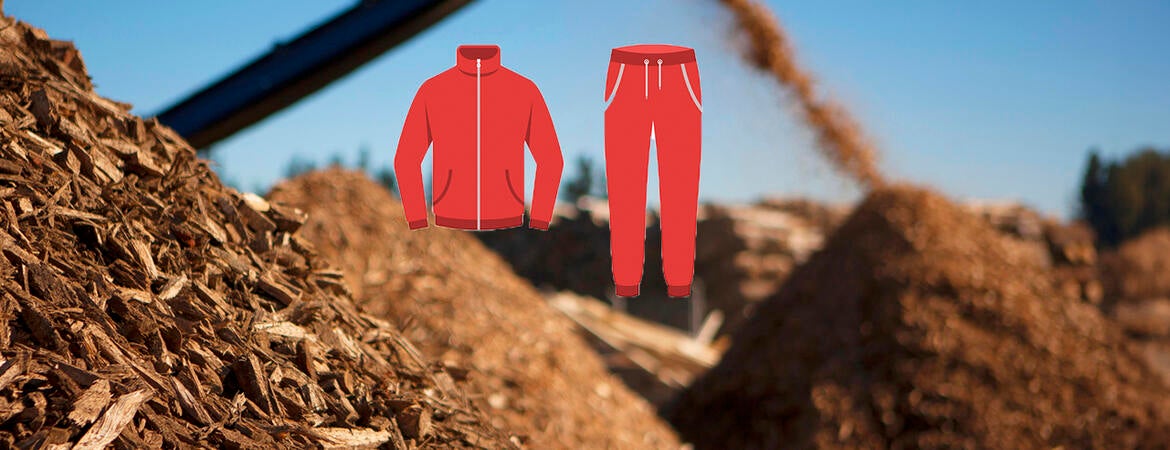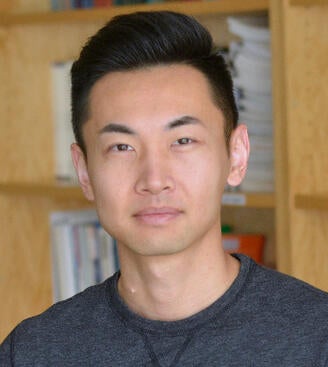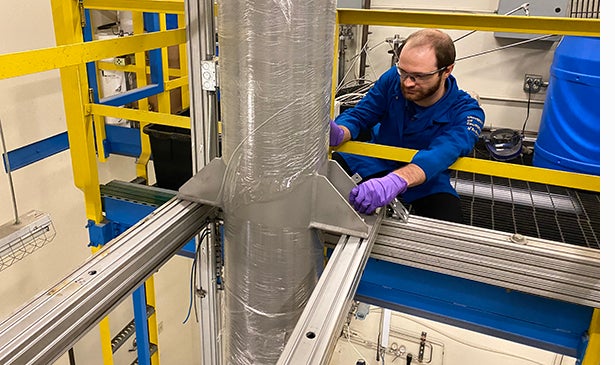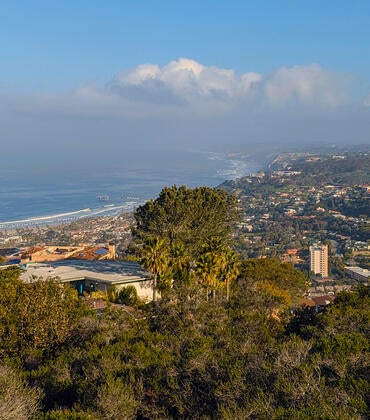
A UCR professor has received a $1.45 million federal grant to bring us a step closer to a future when plant waste from wood processing, farming, and industrial hemp processing can be turned into clothing fabrics instead of being incinerated.
The Department of Energy (DOE) grant will fund further development of a process invented by UC Riverside Associate Research Professor Charles Cai that turns biomass into a viscous dissolving pulp that can be made into lyocell, a lightweight and soft fabric that’s particularly desirable for sportswear because of its ability to wick away moisture.
Cai’s innovation will reduce carbon emissions and unhealthful air pollution because doesn’t involve burning.
His process is called CELF, which stands for co-solvent enhanced lignocellulosic fractionation. It is an innovative biomass pretreatment technology because it extracts lignin, a stubbornly tough component of plant cell walls found in wood chips and other forms of plant-based biomass.
The CELF process can be intensified to also make biofuels, including the fuel used for jet aircraft. Last year Cai received from the DOE a separate $2 million grant to also advance CELF for making jet fuel.
Beyond reducing air pollution and carbon emissions, CELF can serve as a much cleaner method for pulping biomass sources than the still-widely-used Kraft pulping method. Unlike Kraft, the CELF process does not produce black liquor waste, which is toxic and highly alkaline, making it particularly harmful to the environment and costly to treat.
CELF also uses 50% less energy to produce the same grade of dissolving pulp from plant waste.
“By using CELF, we can completely eliminate the production of black liquor, not only making the emissions of the entire operation cleaner but also substantially reducing the amount of energy and the operating cost,” Cai said. “We can also use a variety of different feedstocks. We're not limited to just using trees or tree waste, but we can also use agricultural wastes like sugar cane, corn stover, and even industrial hemp.”
The grant award from the U.S. Department of Energy (DOE) is one of 49 totaling $171 million recently allocated by the Biden administration to fund projects that reduce industrial greenhouse gas emissions and move the nation closer to net-zero emissions.
Congressman Mark Takano, who represents the Riverside, Moreno Valley and Perris areas, said in statement he applauds Cai’s earning of DOE grants to advance “a cutting-edge technology that could help us in the fight to phase out the use of petroleum.”
“On behalf of the people of California’s 39th Congressional District, we are cheering you (Cai) on in this critical work,” said Takano, whose office produced a video about Cai’s innovation.
Cai previously proved the utility of CELF in the laboratory. The grant will allow him the scale up the process to produce 100 times more pulp than his previous laboratory-scale reactor. At UCR’s College of Engineering Center for Environmental Research and Technology, or CE-CERT, Cai is now putting together equipment to demonstrate this pilot plant.
The pulp made at CE-CERT will be sent to Prof. Art Ragaukas at the University of Knoxville, where it will be bleached using a cleaner elemental chlorine-free method to produce dissolving-grade pulp. The other research collaborators on the project are Prof. Chang Geun Yoo at State University of New York and Prof. Valerie Thomas at Georgia Institute of Technology, responsible for process optimization and life cycle analysis, respectively. The bleached dissolving pulp will then be sent to UCR’s commercial cost-share partners, MG Fuels and The Hurd Co., where it will be extruded and spun into lyocell.
“We can introduce a technology to the market that will prevent us from burning these plant wastes and instead produce a transformative fashion product that we can wear, sustainably,” Cai said.





